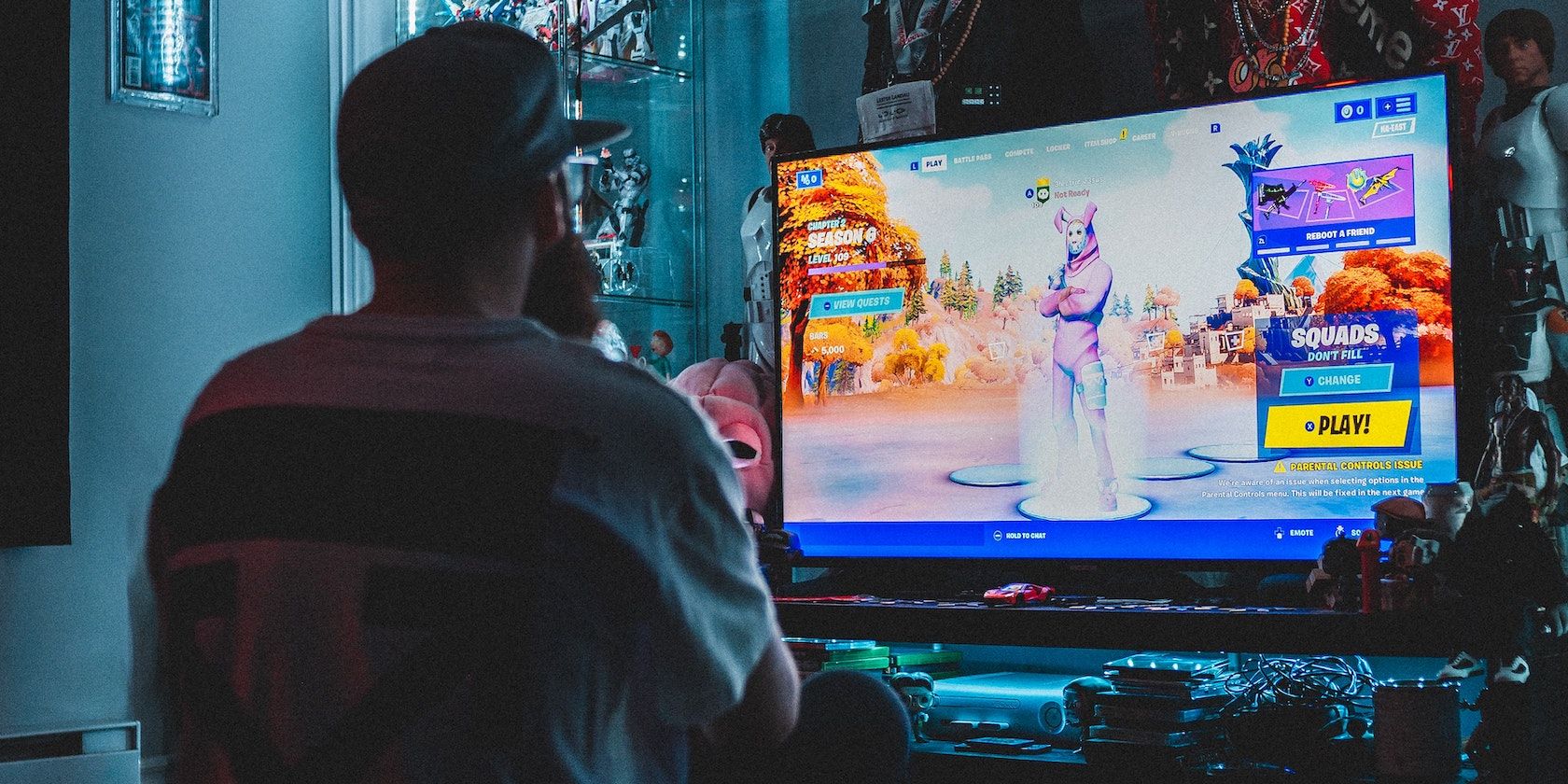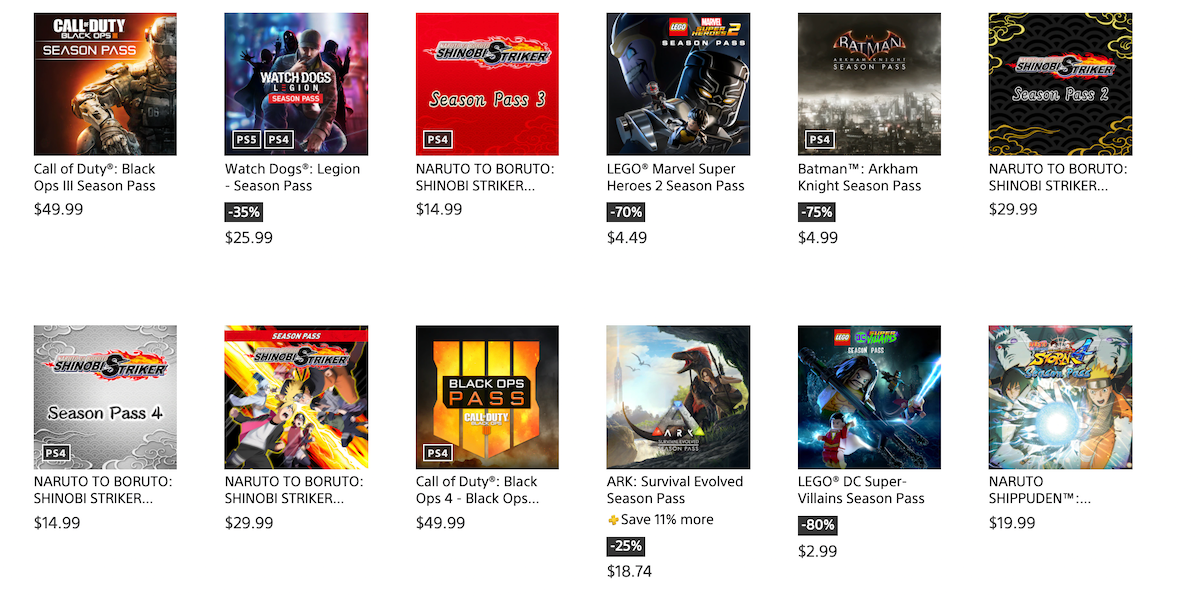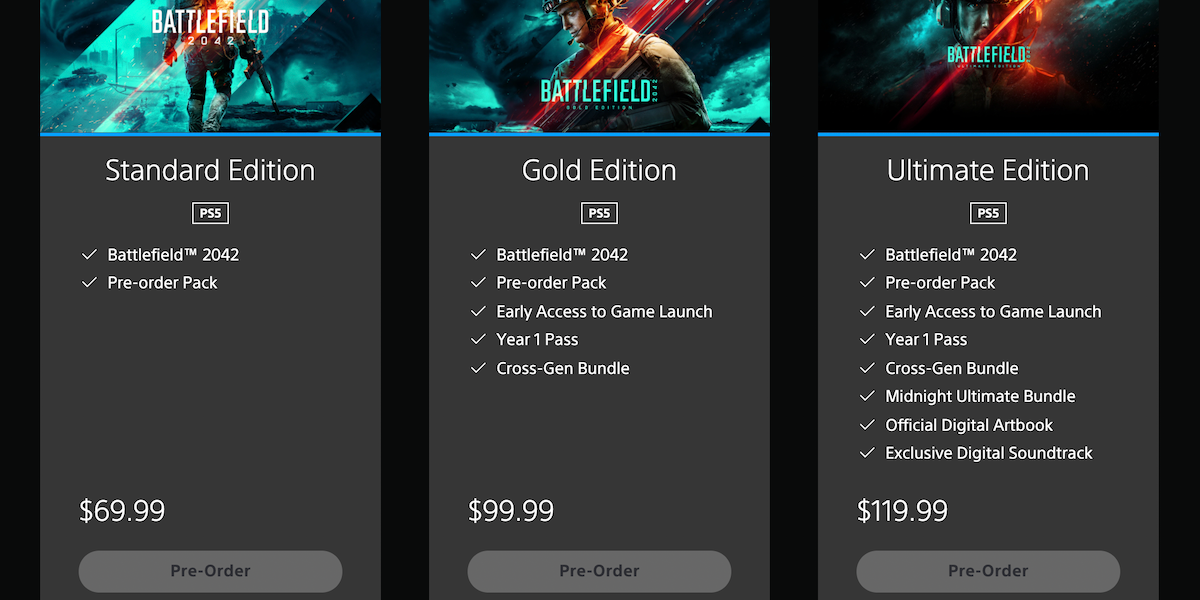Season passes and DLC are firmly engrained in modern gaming, with more and more games offering them before and after their release.
Yet, despite their prevalence in gaming, season passes and DLC can do more harm than good. In most cases, you should steer clear of them. Here's why.
What Are Season Passes and DLC?
First, let's define what DLC and season passes are and how, in this case, they stand out from patches, microtransactions, and expansion packs:
- DLC is a term that stands for "downloadable content" and is content that the developers add to the base game. DLC can be paid or free.
- A season pass gives you access to a set amount of current and future DLC at a reduced price than if you were to purchase each DLC item individually. Games with season passes usually only have one which includes all current and future DLC, but some games feature more than one season pass.
- While technically being "downloadable content", patches and updates aren't DLC. Developers use them to fix bugs and improve their game, whether it's the base game or with DLC installed. They're always free for you to download and though they might add new content, this isn't their primary aim.
DLCs encompass a huge variety of content, since most additions to a game are specific products you have to download. DLCs can be extra story content, levels, costumes, map packs, weapons—the list goes on.
Because of this, you could see DLC as microtransactions and expansion packs, but you'd be better separating these terms:
- Microtransactions are usually smaller, repeated purchases you can use to speed up your progress in a game or unlock items, some of which you can only buy through microtransactions. Microtransactions have garnered a tremendous amount of criticism, not least because microtransactions can promote "pay-to-win" gaming.
- Expansion packs introduce a ton of content, usually adding a new storyline, missions, maps, gameplay features, outfits, and more. Expansion packs often increase the longevity of a game due to how much content they have.
Why You Should Stay Away From Season Passes and DLC
So, focusing on purely season passes and DLC, here are four reasons why you should steer clear of them, or at least, buying them on day one.
1. You're Supporting Developers and Publishers Locking Content Behind a Paywall
This point applies mainly to season passes, which you can usually pre-order alongside a game. Though a season pass can grant you access to future DLC (a problem we'll get back to later), it also allows you access to current DLC and DLC that comes during a game's launch, also called "day one DLC".
The glaring issue with this is if the developers completed this content before the game's launch, then why isn't it included in the base game?
Day one DLC doesn't feel like extra content, but more content that was initially in the base game, then subsequently locked behind a paywall because money. The same goes for completed DLC that's already announced before—yet released after—a game's launch. This can feel like content that's artificially delayed and, again, locked behind a paywall.
While developing a game must be a complex and chaotic process and day one DLC could be content that a team has worked overtime to create, it can often feel you're missing the complete experience for a game you've paid full price for. This is even worse when a game that includes day one DLC is lacking content and filled with bugs and performance issues.
2. You Don't Know What You're Getting With Season Passes and Future DLC
If you pre-order a season pass or buy it before all of its content is out, you're essentially gambling on whether you'll receive a good product or not.
Though you can show support for the developer by pre-ordering games and season passes, more often than not, at least some of the content included in an upcoming DLC pack will feel like a complete waste of money. On top of that, as the developers haven't finished this DLC yet, there's a chance that they might rush it, or it could be incomplete, leading to a half-baked product.
You should stop pre-ordering games unless it's from a developer and publisher you trust and support. The same goes for buying season passes ahead of all of their content and DLC packs: you'll likely wish you hadn't bought it at full price till after the fact.
3. You're Paying More for the Complete Version of a Game
There's an increasing likelihood that video games are going to cost $70 going forward, but if you take season passes and DLC into account, the actual figure is going to be much higher.
Already you can buy multiple versions of a game at launch, with each version containing a different amount of DLC, tacking on an extension such as Deluxe Edition, Ultimate Edition, or Gold Edition, with Steelbook Edition and Collector's Edition versions containing some physical items alongside the DLC and season pass (if the game has one) that come with them.
So, really, you'd be paying way, way upwards of the $70 price-tag games are going to be sold for. Which sort of changes the perception of that price: you're essentially paying $70 for the bare minimum of a game, and tens of dollars more for the "full" experience.
4. Season Passes and DLCs Can Play on Your Patience
With both the base game and DLC, you should wait to see how it is before taking the plunge, only pre-ordering if you have faith in the developers and publishers.
With single-player games, if you're keen to get all the content, wait for the inevitable "GOTY edition", "Complete Edition", or similar, which should include the base game and all the DLC content, aside from maybe a handful of exclusive items.
This is trickier with multiplayer games, where everything is much more in-the-moment. You might feel pressured by friends or the player base to buy the season pass, time-limited battle pass, or an upcoming DLC pack. Though you might prefer to wait, the game will direct its player base's hype and attention towards its new content, which might make you feel left out if you don't buy it as well.
But regardless of game type, season passes and DLC packs want you to buy them as soon as possible (i.e. when they're the most expensive), marketing them as a more complete experience (as mentioned before). Which isn't right: there should be enough content in the base game so that DLC is an extra, voluntary addition, not the final piece of the base game.
Patience Is Your Friend With All Things Gaming
Season passes and DLC can offer some wonderful benefits, such as increasing a game's longevity in a meaningful, enjoyable way. However, most season passes and DLC fail to deliver, at least until you can find them on sale.
As with all things gaming, patience is worth practicing. Don't give in to pre-orders or buy a season pass before you know what you're getting. The vast majority of DLC content will be available at a discounted price in the future, with the game running at its best after patches. All you have to do is wait.




